Do you need to try macro tracking? Does tracking your macros work? What the heck does IIFYM mean? Learn the surprising thing about macro tracking (from a registered dietitian), plus why tracking your macros isn’t necessary for most of us.
Have you seen “IIFYM” on social media posts or heard people talking about creating meal plans that “fit their macros”?
Macro tracking or “tracking your macros” refers to the habit of counting or tracking how many grams of carbohydrates, protein, and fat you have per meal or per day. And it’s very much a dieting behavior. As intuitive eating and a non-diet approach become more and more popular, we’re seeing an increase in the amount of misinformation being linked to it with hashtags, coaching programs, and “lifestyle” changes. It’s beyond frustrating (and can be potentially harmful) to imply that intuitive eating and macro tracking are compatible.
Here’s why you don’t actually need to micromanage your meals with IIFYM.
[Tweet “Is Macro Tracking Helpful? Here are three reasons why it’s not necessary for most of us”]
What Are Macros and How Do You Track Them?
“Macro” means macronutrient, or the nutrients that provide our bodies with energy and are consumed in gram amount (as opposed to a milligram or smaller amount, as for the micronutrients). One gram of carbohydrate has four calories. So does one gram of protein. One gram of fat has nine calories, and that’s just about all you need to know to quickly become a self-taught expert in macro tracking.
I’m serious. That’s pretty much it.
In theory, without any nutrition knowledge at all, one could become quite skillful at reading labels, doing simple math, and staying within certain parameters of how many grams of each to consume each day. The most common method starts with estimating energy needs (calories), and divvying them up between percentages of carbohydrates, protein, and fat. From there, you’d divide by four, four, and nine and end up with the number of grams needed each day. Tinker around with the percentages based on whatever goals you have in mind and you’re all set to go out there and crush it.
Except….
Plot twist: Your body doesn’t need you to track your macros.
Brief Physiology Lesson on Macronutrients
Now there are instances where knowing how many grams of carbs/protein/fat you’re eating is recommended or even necessary. Maybe you’re an athlete with performance goals who needs to prioritize protein or carbohydrates for refueling and recovery. Maybe you have Type 1 diabetes and need to know how many carbs you’re eating to accurately dose insulin.
Let’s be very clear: Intuitive eating and a non-diet approach is never about black & white/all-or-nothing thinking. There are always going to be exceptions and cases like these. The major difference is the mindset. A person with Type 1 diabetes doesn’t need to count carbs for the sake of tracking their macros; they do it to accurately dose a life-saving medication. An athlete doesn’t measure grams of carbs during endurance training to lose weight; they do it to make sure they don’t underfuel their body and risk injury or poor recovery. Mindset and intent is everything.
Now, back to basic physiology. Without diving too deeply into how the body digests, absorbs, and utilizes the energy it gets from food, just know this:
- Macronutrients are absorbed in one of only a few forms. Simple sugars and starches can be absorbed and converted to glucose (energy), fiber is excreted. Protein ends up getting denatured and absorbed as amino acids. Fat goes through a process to separate fatty acids from their glycerol backbone.
- Yes, there are differences in the source. The simple carbohydrates from something like sugar is going to have a different effect than eating high-fiber, complex carb food. But your body is going to absorb and use the energy from that simple carb whether it came from a piece of fruit or a high-dollar, gluten-free, paleo-approved cupcake.
- Your body doesn’t keep a running tally, your brain does. Our energy needs change. It is normal. It is natural. And regardless of how inactive you are you still deserve to eat to nourish your body, without running through the math to factor out whatever you would have “burned off” in a workout.
- You aren’t going to change your health or your body with one meal or in a single day. Isolating such small increments of time is a colossal waste of time because the big picture is what really matters.
Take a look at this example from dietitian Fiona Willer of Unpacking Weight Science. This graphic shows four people, all considered “weight stable” based on BMI:
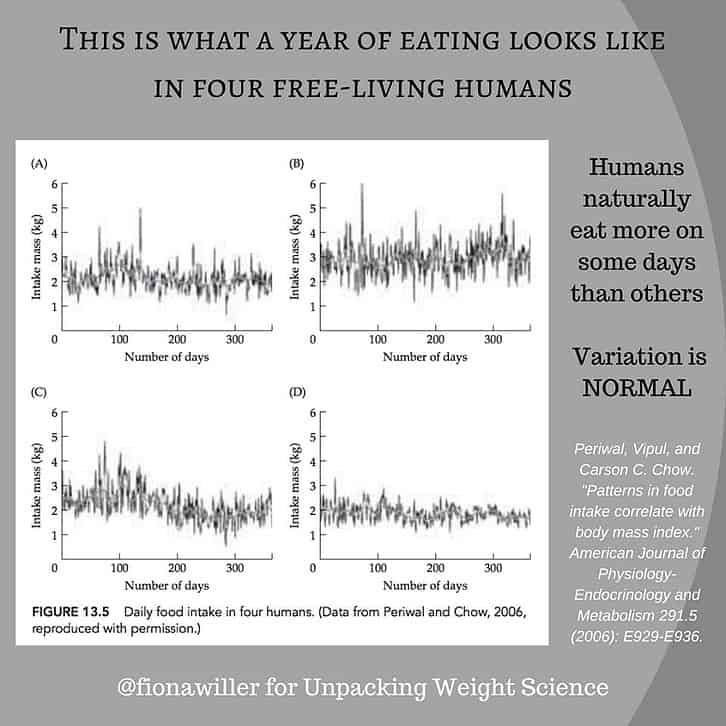
I mean, just look at that. There are days where these people ate a LOT. Then some days where they didn’t eat much at all. The researchers noted periods of overeating that lasted days or months. What does all of this mean?
Here’s what it means: You can absolutely vary your intake from day-to-day, week-to-week, month-to-month and not see a significant change.
One key thing they also noted? Study subjects with less consistent body weight also reported more fluctuations in the energy density of their diet. In layman’s terms: people who had a more chaotic pattern of eating (such as binge eating followed by purging/restriction) saw more changes in their weight. This is just one example (by no means can we draw conclusions from a single study on any subject, ever) but if you’re curious to read more it’s linked to the graphic above.
Let’s also note, the restriction doesn’t always come in the form of eating less. It can also be a restrictive mindset, such as the habit of someone who tracks their macros to be diligent on most days, but allow a “cheat meal” or “cheat day” and create some of that chaotic eating described here.
That’s part of why I take issue with “If It Fits Your Macros” or IIFYM. It perpetuates the idea that as long as food “fits” into your macro ranges, it’s a good choice. Cheat meals and cheat days aren’t necessary when all foods are permitted, regardless of how many grams of carbs, protein, or fat they have.
I notice many people who use IIFYM approaches are still very disconnected from their hunger and fullness cues. They may be eating past their fullness knowing they have “some left” on their IIFYM meal plan. Likewise, they may finish a meal and still feel physically hungry or unsatisfied, but because they’ve already reached their macro limit for the day, they feel they can’t eat any more. This helps illustrate why macro tracking and IIFYM meal plans are not compatible with intuitive eating. It serves to further distance you from body signals, food preferences, and it remains a rigid, external cue for eating no matter how flexible your macro ranges are.
Macro Tracking is a First World Problem
There are a lot of first-world problems out there (intermittent fasting, I’m looking at you next). But let’s take a moment and just think about the level of privilege and access one has to have in order to even be able to follow IIFYM. To even get started, let’s assume you have all or most of the following:
- Education. You understand (at least, to some degree) what carbs, protein, fat, and calories are
- Time. You can afford to devote time and mental bandwidth to think about your food in this way. You can take the time to enter the info needed to plan, measure, and track your food.
- Choice. You have a choice when it comes to food and are free to make selections from what is available to you or what you can access.
- Food Access. You likely don’t feel pressure due to food insecurity and can trust that you’ll have another meal or opportunity to eat later.
- Money. Let’s assume you aren’t tracking macros on scrap paper with a pencil that lost its eraser. The majority of people who track macros are using technology in some way, whether that’s journaling in spreadsheets, apps on their phone, or with a coach whose services they pay for.
And, at least in my experience, and a lot of people who track their macros also have a pretty disordered relationship with food and/or their body. So does macro tracking work? It depends on what you mean by that.
It’s just not necessary. And it’s just not helpful.
After all, what did humans did for thousands of years before we knew what calories were? Nutrition science is a very young field. It wasn’t until a few generations ago that we had the knowledge of what macronutrients were, what they did, and how to obtain them in our diets. Humans certainly did not spend any time wondering how many of each they were getting or meticulously tracking them in apps or journaling tools.
The point is, that connection to what your body needs for fuel is there. In a modern society where we are faced with messages from diet culture around every turn and plentiful food options, it’s easier than ever to learn to ignore that connection. But there are many people who do just that. If we compare the attitudes towards food and health in the United States, it’s a stark contrast to some other regions of the world. It’s an interesting (albeit, disappointing) phenomenon to observe how attitudes towards food and bodies evolve when American or Western culture begins to infiltrate other cultures. There are people and cultures throughout the world who don’t rely on MyFitness Pal or IIFYM to guide their food choices.
Does Tracking Your Macros Work?
Short Answer: It depends.
Long Answer: It might, depending on your reasons and motivation for tracking macros. But at what cost? Unless there is a physiological need (as discussed above), IIFYM perpetuates disordered behaviors around food and often leads to unsustainable dieting habits.
Your Body Doesn’t Need You To Track Your Macros
Here are a few reasons why:
- We don’t eat nutrients; we eat food. And food is more than energy and nutrition. To say we eat only for those reasons is like saying people only have sex for procreation. Your relationship with food is part of mental and emotional health, which is part of overall health. If stressing about nutrients and tracking macros harms those, guess what…it’s not a healthy behavior!
- Appetite and energy needs can and will change; this is natural AND normal. It bears repeating because so often, we’re afraid or anxious about our appetite. We want to control our hunger, not embrace it and grant permission to respond to it. Macro tracking is one way to keep our appetite “in check”, by using the logical knowledge that we’re meeting all of our nutrition needs to convince us not to eat if hunger pops up.
- Your body doesn’t run on continuous 24-hour cycles. Sure, we know about circadian rhythms. We experience a natural ebb and flow on our body clock. But there’s no internal stopwatch counting down the minutes until the clock rolls over at midnight. Our bodies don’t hit a reset button when we start a new day. I mean, how confusing would it be to try to maintain that when you fly back and forth between timezones? I’ve never done it but the math alone would make it just about make my head spin.
Everything you need to become an intuitive eater is already there. It’s not easy. It’s hard to reject diet culture and begin trusting your body again. But one small step towards that is letting go of external tools like tracking your macros. If you didn’t track your food or use an app to journal every meal, how much more time would you have? How many fewer things would you have to worry about?
I’ve talked to many people who have made that shift away from counting calories and tracking macros and I’d love to hear from more of you. If you’ve made that change, what was the hardest part? What did you learn along the way?
And if you’re looking for more support for a nondiet approach and intuitive eating, be sure to check out my Intuitive Eating Workbook. It’s full of resources and tools to help you kick the dieting mentality and find food freedom!
[Tweet “Your Body Doesn’t Need You to Track Your Macros: Here’s 3 Reasons Why”]
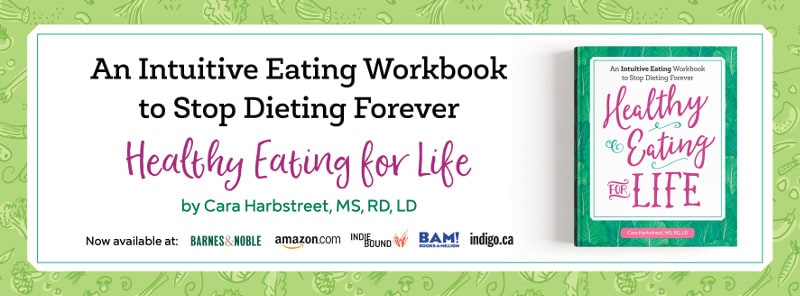

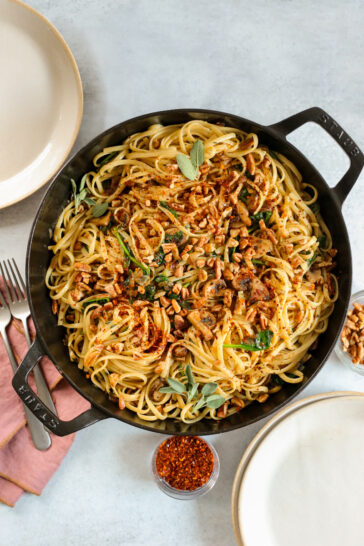
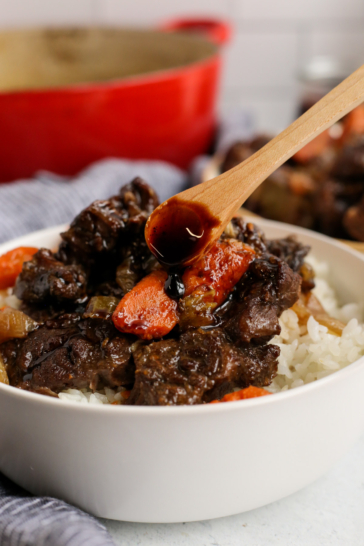
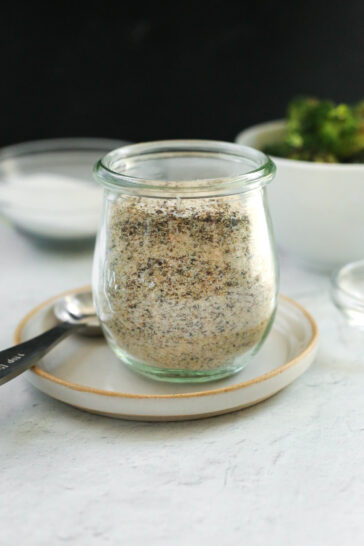
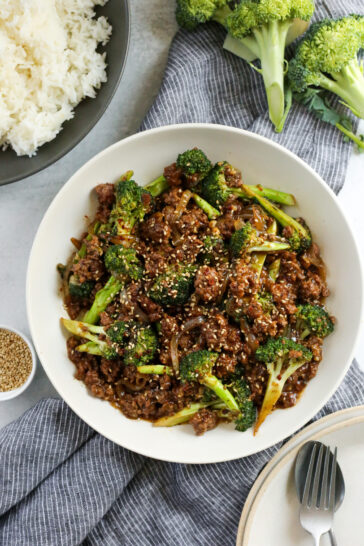

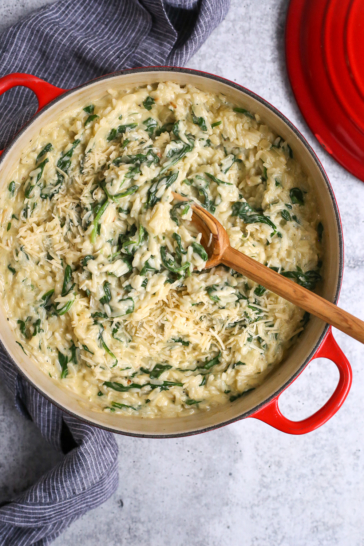







Questions & Reviews
I used an app for several years to track what I ate and then decided to stop. Most days I was eating over ‘my range’ and found it wasn’t motivating me to eat otherwise. I don’t miss the tracking but occasionally I’ll still check the calories of a certain food. I was grateful for the knowledge at the time when I used the app as I felt it gave me some kind of foundation for what I was putting into my body but I no longer feel that kind of micromanaging macros (haha) is necessary or really helpful for me.
Very interesting article! I love the thought of not having to track. My keto support group is pressuring me to do it but I’ve been resisting because of different factors. For one, who has that much time?? For two. I honestly don’t want to think about FOOD that much or that often. It’s hard enough to plan meals, shop for them, cook and clean up. I think that’s plenty enough time devoted to the thing that is supposed to FUEL US FOR A GOOD LIFE, filled with all of the OTHER THINGS that we enjoy!!??!!
Great point Cindy, I agree! Food is important (there’s no denying that) but when it starts to override other important things it really sucks the joy out of eating. Rest easy in knowing you don’t have to track every little bite or gram!
What if I lost my period and am under eating? I jumped down to 1100cal range when I first started eating healthy and dropped 20lb. Now I know for sure I need to eat. How can I eat so I know I’m eating enough without counting calories? It seems as if I’m always picking not as dense calorie foods but whenever I eat a calorie dense food I’m always contemplating whether I went over my daily intake or not.
Thanks for this! I was feeling guilty about tracking macros stressing me to the point of it feeling mentally unhealthy. It was a relief to see someone say what I’d already decided for myself. I lasted almost a month of trying to hit some macros and quit about a week ago.
I stopped trying to track my intake, and am now the leanest I have been in a long time. My focus now is just eating fewer calories, and finding ways to cut uneeded calories out of my diet. I also cut back on my protien intake as I am now seeing it was a bit overkill, and was actually keeping me from loosing fat.
Carbs are not the enemy, keep your overall calories reasonable. Have a nice balance of protien and carbs and your golden. restricting carbs only seems to work because you’re also restricting calories but it leaves you feeling like crap, and stalls after a while.
My abs are starting to pop like crazy. Not tracking a damn thing. Just having a mindset of being conservative but eating any type of food I want. It’s truly calories in vs calories out.
honestly this has really helped me. i track macros and overkill with the protein. I’m wanting to break the habit of tracking macros so i have time for other things. thank you for sharing.
Hi there mates, pleasant piece of writing and nice urging commented here, I am really enjoying by these.
Thanks for this post. This is really just what I needed. Coming from a fitness/bodybuilding competition background, tracking macros was my life and looking back I was so miserable and I have developed bulimia because of it. Now if I look at another macro I get tremendous anxiety around food because of this! I am only focus on calories in/out and my life has changed for the better.
Oh, which app did you use? I’m currently using yazio for tracking my macros (https://www.yazio.com/en). But I also don’t track in that sense that it’s restricting me. That didn’t work out for me as well. Same as for you, my main reason to track was to give me a feeling of power over what goes into my body, and I can be sure that it’s good for me. But I understand that you shouldn’t go over the point of becoming obsessed with tracking your macros – it should be a balance and an urge to take care of your body…
I just joined an 8-week program a couple of weeks ago and am starting to get a bit frustrated. Although the leaders are fantastic and are giving us so much useful information, I feel the shopping, weighing, tracking, and prepping are taking up my ENTIRE day. I run a small business, this is not sustainable. Although I hear it gets easier….but does easy mean good? Another thing I noticed about the group is a lack of awareness. The group is constantly eating processed deli meat, jerky, meat from big box stores, i.e. Costco…ziploc baggies everywhere, single-use plastic, and heavily processed dressings. As you said, as long as it meets their macros that’s all that matters! Ef the deplorable conditions of shrimp farms, slave workers, our sea’s dying, the earth filling up with plastic…Sorry for the rant! I was looking for “low-carb” recipes on Pinterest while starving and tired and ended up here, I think this is a sign, lol!
Tracking macros is an amazing way for people like me that were out of touch with hunger/fullness cues. You should be tracking macros to find health. It helped teach me portion control and how to lose, maintain, and gain weight in a way that my body can carry healthily. I recommend everyone count macros for shirt 12-week periods 1-2 times per year and then after 3-5 years you would have a much healthier lifestyle. Intuitive eating only works if you have good eating habits. Most of the world is disconnected and macros are a great part in getting us to recognize what our body needs.
As a registered dietitian, I do not recommend that anyone “should be tracking macros to find health”. This is literally an entire blog post about exactly why. If you choose that for yourself, that’s one thing but it’s harmful to suggest it’s something anyone can or should do when you don’t know their personal history or relationship with food. If you struggle with identifying hunger and fullness cues, I recommend you check out this post, “Am I Hungry?” which offers a way to determine what hunger or fullness feels like for you.